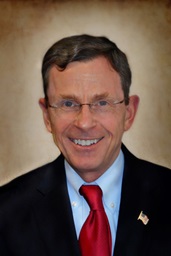Key points
- Abortion debates can lead to binary thinking.
- Relatively few people are on the extremes of the abortion debate.
- It’s possible to be pro-choice, in terms of supporting women’s rights to control their own bodies, and pro-life, in opposing capital punishment and working to make sure all children born into this world get the support they need to flourish.

Commentaries
I am a pro-choice-pro-life pastor.
For years, we have been forced into taking one of two sides. We are asked, “Are you pro-choice or pro-life?”
Within the dominant conversation on abortion, we have been pushed to the edges. In this framework, you are either for life, for babies, or for choice, for women.
The Rev. Rebecca Todd Peters, a scholar and social justice advocate, writes, “When the issue of abortion is framed as a debate, we are reduced to binary thinking. … The divisive nature of this framing is evident in the false struggle cast between the rights of a pregnant woman for self-determination and the prenate’s right to life.”
These binary frames push us into different moral worlds and understandings of this issue.
On the pro-life side, the argument is framed by thinking of the rights of the one to be born. How does one protect the innocent? For many in this camp, this moral position is based on the theological belief that life begins at conception and therefore has equal status with the woman. When one starts from this position, it is nearly impossible to compromise the life of an unborn child.
On the pro-choice side, the argument is framed on the autonomy and agency of the pregnant woman. How does a woman not have the legal right, like a man, to choose agency over her own body? For many in this camp, the moral question is based in the theological belief that we are all created in the image of God. Therefore, how can a man have rights over his body that a woman cannot have? When one starts from this position, it’s nearly impossible to compromise the rights and life of a woman.
These two options, pro-life or pro-choice, leave us little room for where most of us find ourselves. We have been pushed to make a conclusive stand on a question that is more fluid than absolute. Very few people are on the extremes -- abortions at any time or no abortions ever, no exceptions. Most of us are in the middle; we are pro-life and pro-choice. We want a world where women have the right and agency to decide about their health care and their body. And we want a world where every child that is born is born into an environment of love and healthy possibilities.
Pew Research has surveyed on the Dobbs vs. Jackson decision, concluding: “A majority of Americans disapprove of the U.S. Supreme Court’s landmark ruling overturning the Roe v. Wade decision, which had guaranteed a constitutional right to an abortion for nearly 50 years. Public support for legal abortion remains largely unchanged since before the decision, with 62% saying it should be legal in all or most cases.”
The inadequacy of these terms “life” and “choice” are being challenged by many religious leaders. Sister Joan Chittister, a Roman Catholic Benedictine, said during an interview with journalist Bill Moyers, “I do not believe that just because you are opposed to abortion, that that makes you pro-life. In fact, I think in many cases, your morality is deeply lacking if all you want is a child born but not a child fed, a child educated, a child housed. And why would I think that you don’t? Because you don’t want any tax money to go there. That’s not pro-life. That’s pro-birth. We need a much broader conversation on what the morality of pro-life is.”
Subscribe to our
e-newsletter
The Rev. Peters says this: “For many women, abortion is a morally good decision, a healing life-giving experience. It allows some women to be responsible parents to the children they already have. For other women, abortion is a responsible decision that allows them to live life abundantly by finishing their education and becoming responsible adults. For still other women, not being pregnant helps maintain their thin thread of sanity that allows them to survive amid mental illness, poverty, divorce domestic violence or a host of other challenges.”
We need a much broader conversation. Perhaps the binary way that we view life is inadequate for us as spiritual beings.
I have three daughters, one son. I desire for my daughters and my wife to have the right to decide about their health care. I want them to have agency over their bodies in the same way that my son and I have agency over ours.
I began my journey as a pastor completely on the pro-life side of this debate, leading my first congregation to partner with pro-life ministries. Thirty years later, after five pregnancies, four births and more life experiences, I am now pro-choice with a congregation that joined in the national lament and put up a banner stating that we support a person’s right to choose following the Dobbs v Jackson Women’s Health Organization ruling.
I am also pro-life, and therefore I believe we must fund education. We must end capital punishment. We must ban assault weapons. We must create affordable housing. We must procure a livable wage. We must obtain health care for all. We must construct systems that care for every child born.
Could it be, if we lived out our faith and worked to bring a little more heaven on earth, that the need for abortions would continue to drop and we could all live in a both pro-choice and pro-life world?
Anders is pastor of Cathedral of the Rockies/First United Methodist Church of Boise, in Boise, Idaho.
News contact: Sam Hodges at (615) 742-5470 or [email protected]. To read more United Methodist news, subscribe to the free Daily or Friday (weekly) Digests



